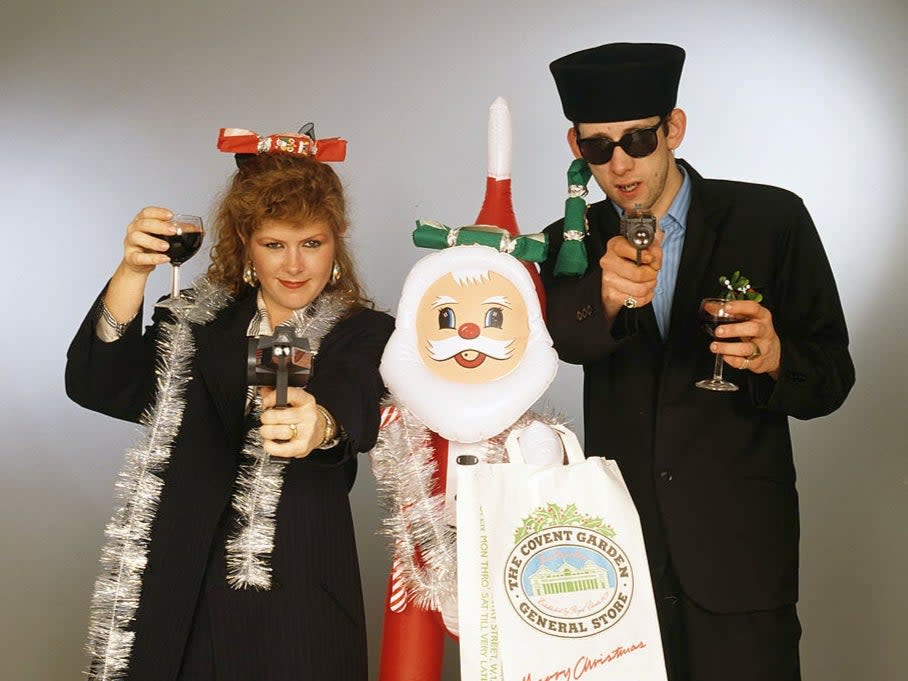Fairytale of New York: BBC Radio 1 to air censored version while Radio 2 opts for original

BBC radio stations have taken different stances on whether to censor The Pogues’ “Fairytale of New York” this Christmas.
The festive track has been at the centre of debate for many years due to Kirsty MacColl’s verse, which includes the line: “You scumbag, you maggot / You cheap lousy f****t.”
On Thursday (19 November), it was announced that BBC Radio 1 will this year air a censored version in which the word “f****t” is removed from the song, and replaced with the lyric: “You’re cheap and you’re haggard”. The word “s**t”, sung by The Pogues’ Shane MacGowan, will be silenced.
Meanwhile, Radio 2 will air the original version, while DJs at 6 Music will be able to choose which version they play.
“We know the song is considered a Christmas classic and we will continue to play it this year, with our radio stations choosing the version of the song most relevant for their audience,” a BBC spokesperson said.
It’s not the first time the slur has been replaced with the word “haggard”, with several cover versions choosing to adopt this lyric and MacColl herself even singing it during a 1992 performance.
While there have been frequent debates as to the meaning of the word “f****t” in the context of the song, the word is used as a homophobic slur in 2020.
Last year, the debate around the song was reignited again, after the uncensored version was performed in the Gavin and Stacey Christmas special.
The use draw more than 800 complaints but was defended by the BBC, who said: “‘Fairytale of New York’ is a very popular, much-loved Christmas song played widely throughout the festive season, and the lyrics are well established with the audience.”
MacGowan defended the song in 2019, telling Ireland’s Late Late Show: “I’ve been told it’s insulting to gays. I don’t understand how that works. Nobody in the band thinks that’s worth a second’s thought.”
Read More
A guide to the Booker Prize 2020 shortlist
Every Netflix Christmas romcom ranked from least to most ridiculous

 Yahoo News
Yahoo News 
